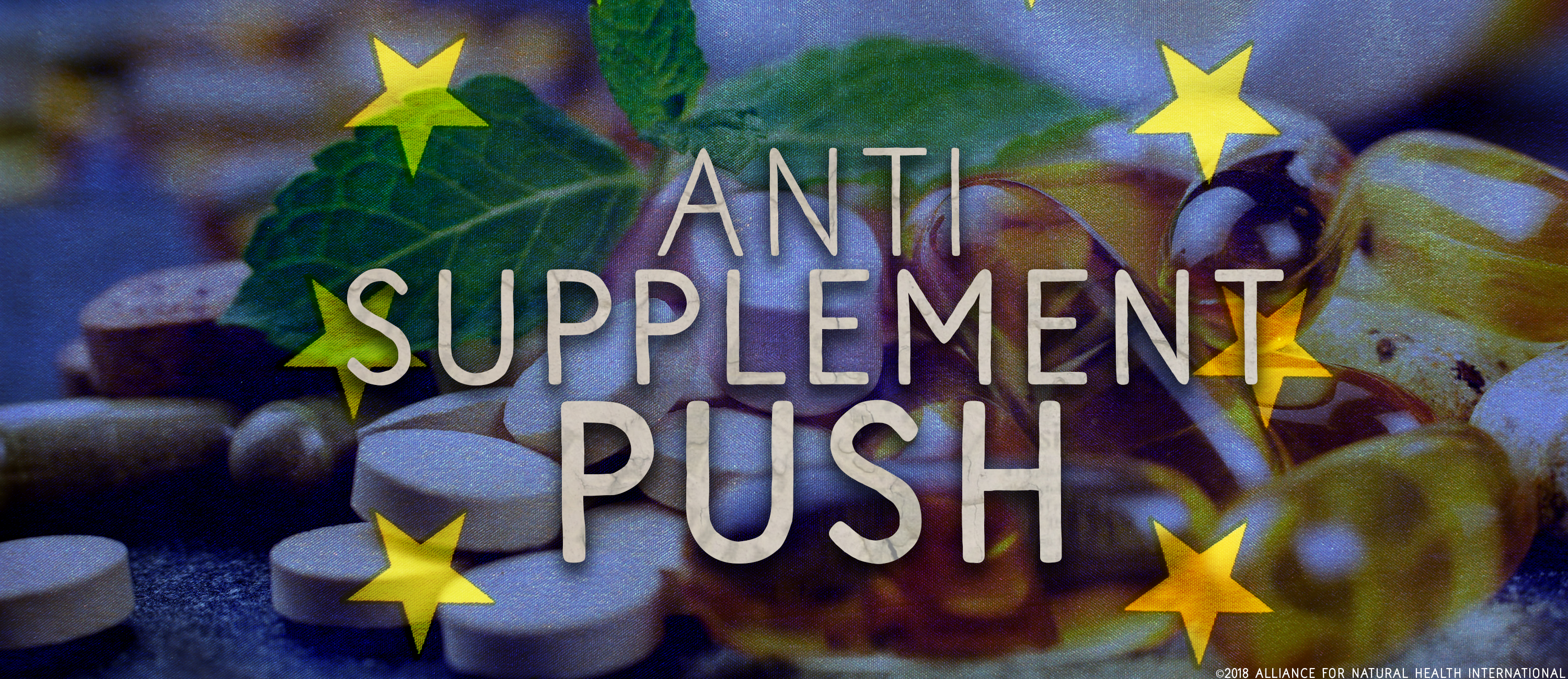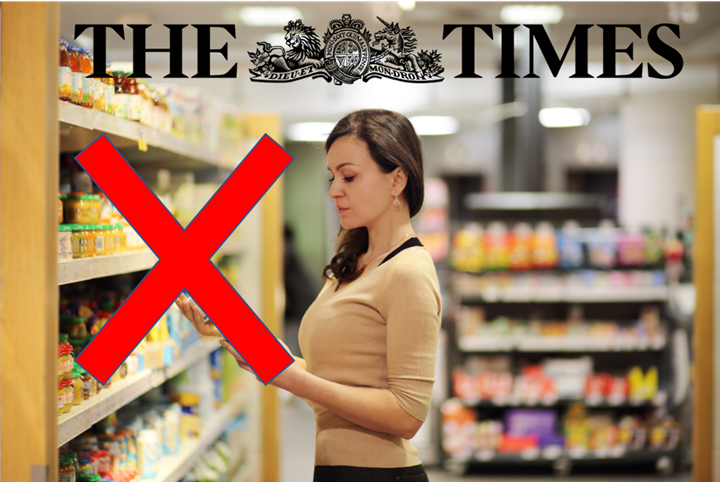Content Sections
In a deeply retrogressive move, the Spanish government is planning a major crackdown on natural remedies, ranging from homeopathy through to food supplements, responding to a move by academic skeptics who have labelled them as ‘pseudoscience’ and claim they are responsible for deaths given that people prioritise their use over ‘proven’, conventional therapies.
In a knee-jerk response to around 400 academic petitioners, the Spanish government is planning to ban use of non-conventional, natural therapies in health centres and universities. If a massive public backlash doesn’t follow, we’d be very surprised (and we are in the process of gaining more intelligence on what is happening on the ground in Spain).
You may recall that in July 2017 we reported on the EU’s crackdown on online sales of food supplements that were considered outside the narrow confines of EU laws. The Rapid Alert System for Food and Feed (RASFF) Portal has become a very important mechanism of communication between regulators from different EU member states. Our analysis of notifications over the last 12 months has revealed that the UK has in the last 12 months filed more notifications concerning food supplements than any other EU member state. By a long shot: 60 reports as compared with Sweden one of the next highest reporters, with 43 and Germany at just 23.
EU RASFF portal – how news about unfavoured supplements spreads rapidly across the EU
With just 4 months to go before the UK begins its extraction from the EU, it might be hard to reconcile the fact that UK regulators are so keen to inform other EU member states of their concerns. Especially when many are unfounded in any safety concern at all.
View all food supplement and dietetic food notifications from the UK, Sweden and Germany over the last 12 months.
But anyone passionate about natural health, who believes – like us – that the primary way in which we should manage our health should be via natural means, might be surprised by one of our findings. That is, there are still a significant number of companies and products out there which abuse the concept of natural or non-pharmaceutical healthcare. For example, looking at the last year’s worth of data published on the RASFF portal, involving 254 notifications, the single active ingredient with the highest level of reporting in food supplements relates to products with the illegal inclusion of 2,4-dinitrophenol (DNP) (39 cases, 15% of all cases) for weight loss.
About one half all notifications concerning vitamins were linked to vitamin B6, with no consideration of whether or not the source was pyridoxine or pyridoxal sources, despite robust evidence that the form really does matter.
The last two months of data also show a spurt in notifications from Sweden, that has also witnessed, on a happier note, a successful claim in the highest court to allow the continued sale of 5000IU (125 mcg) vitamin D food supplements. This is something of a breakthrough, not only because Swedes are notoriously deficient in vitamin D, but also because the amount represents 2.5 times the so-called ‘Tolerable Upper Level’ (TUL) set by the European Food Safety Authority (EFSA). The TULs level are both arbitrary and, paradoxically, when turned into hard, regulatory dose limits, can prevent consumers gaining access to beneficial levels of micronutrients.
View all food supplement and dietetic food notifications since 1 September 2018 (until the present)
Netherlands and France have submitted exactly the same number (16) notifications, with Germany being only slightly ahead (23). Sweden submitted 43 notifications, but it remains the UK, with its 60 notifications over the last 12 months, that stands out above the crowd.
Notifications appear to follow levels of awareness among regulators. Currently, yohimbe bark extract is being notified widely by many Member States (see the last two months of data via link above). The motivation is unlikely to be public safety in this case. A more plausible explanation is the fact that the active compound within the West African yohimbe bark extract, yohimbine, is being actively researched as a weight loss/erectile dysfunction treatment.
Natural concerns
We leave you with 4 take homes from our latest analysis of RASFF reports:
- Regulatory oversight over supplements will continue as long as potentially risky and justifiably illegal ingredients like DNP get discovered in ‘spiked’ supplements sold in the EU
- The UK’s desire to regulate disproportionately is unlikely to be moderated post-Brexit given that UK regulators have demonstrated themselves to be among the most zealous in Europe
- Most of the high dose vitamins being challenged in recent months originate from the US
- Sixty two percent of all food supplements and dietetic foods subject to notification during the last 3 months were sold online.
- The RASSFF portal is a key mechanism by which invalid (as well as valid) scientific concerns over safety are passed between EU Member States, so leading to disproportionate regulatory actions that limit consumer freedom of choice.
- The skeptic movement continues to have a major influence on regulatory decisions, and many of its views lack a sound scientific basis.









Comments
your voice counts
28 November 2018 at 8:36 pm
Who has access to report to the RASFF site? Only relevant authorities? Any one? Pharmaceutical manufacturers?
I smell something coming from the latter.
Surely there are freedom of choice issues here? If people are presented with the relevant information and substances are safe, surely the right to choose has precedence? Or am I taking too simplistic a view?
Whilst scepticism is good, the type of denialist scepticism that is on the rise is bad and often based on opinion (fear?) or protectionist views rather than proper science - despite most 'sceptics' spouting science is supreme and must be obeyed (sounds like religion to me).
29 November 2018 at 6:42 am
2,4-Dinitrophenol has caused more deaths in UK between 2012 and 2018 than in the rest of the world combined https://publichealthmatters.blog.gov.uk/2018/08/13/deadly-dnp/
29 November 2018 at 10:05 am
Please, let us know about actions in Spain to protest the moves of the governement. I am eager to support this.
We recently moved to Spain from The Netherlands, one of the reasons we choose Spain is that the Spanish are overall much more open to natural medicine than the Dutch. So there is much more choice and many conventional doctors also apply or recommend natural health care.
Not that long ago I was happy that Rajoy was replaced by Sanchez. That didn't last long.
29 November 2018 at 2:02 pm
Hello Jeroen
As hear more on the situation in Spain we will let people know. We hope you're enjoying your new home otherwise.
Warm Regards
Melissa
29 November 2018 at 11:45 am
Thanks for the RASSFF link. No doubt you have studied the list more thoroughly than I but I get the impression that the great majority of notifications relate to issues that are not controversial - e.g. salmonella, aflatoxins, heavy elements etc. And perhaps the greater number from UK indicates that the UK authorities are more on the ball than others rather than any particular over zealousness? I hope so anyway.
29 November 2018 at 12:30 pm
The more widely and frequently EU- and national authorities are confronted with the Swiss developements, leading to legal acceptance of homeopathy and other "alternative" treatments, and the reasons for that, the better.
The official expectation, that this will lead to a massive reduction in healthcare costs should stir general attention. It can be tested in the coming years.
29 November 2018 at 12:37 pm
The public should be allowed to buy natural supplements if they wish to. Think this could be Big Pharma again
29 November 2018 at 10:00 pm
Are we getting too precise about label-terminology? For example: 'food supplements' | 'health supplements' | 'natural food therapy' | 'whole food nutrition' plus the media's favourite silly question when interviewing the lifestyle habits of minor celebrities; "are you popping any pills" whatever they mean by that! When does an edible substance cease to be a dietary ingredient and suddenly change into something called a 'food' or 'health' supplement? Should all supplements be sold in a standardised 'recommended dose' format so the 'dumb consumer' won't confuse a supplement with ordinary food? When you drizzle a teaspoon or two of cold-pressed Omega-3 plant oil on your salad, are you adding a food or a supplement to your meal? When humans consume anything through the mouth it enters a very complex 'machine' where it is quickly emulsified into a liquid soup. It is totally irrelevant to our body if it had a neat label attached to it - "look out guys, we've got a supplement on its way down to the engine room ... wonder what it is ... does it have a label so we know what to do with it"? Concerned about labels? Time to get real!
Your voice counts
We welcome your comments and are very interested in your point of view, but we ask that you keep them relevant to the article, that they be civil and without commercial links. All comments are moderated prior to being published. We reserve the right to edit or not publish comments that we consider abusive or offensive.
There is extra content here from a third party provider. You will be unable to see this content unless you agree to allow Content Cookies. Cookie Preferences